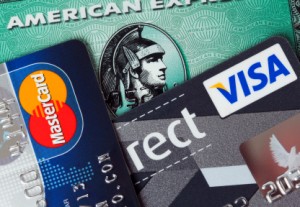Facing Both Bankruptcy & Divorce? Here’s Which One To File For First

New Jersey couple Rhona and Matthew experienced some very rocky years leading up to their decision to divorce. The problems began in 2011, when Matthew lost his job and Rhona, who had been staying home with kids, could only find part-time work. With no savings, the couple lived off their credit cards, racking up over $150,000 in debt by the time Matt found employment in 2013. Even with Matt making money again, dealing with all their debt felt like an oppressive and impossible-to-complete task. After careful thought, in 2014, Matt and Rhona decided to file for bankruptcy. At the same time, mainly due to the toll money stress had taken on their relationship over the past few years, Matthew and Rhona also decided to file for divorce.
Does any of this sound familiar? According to statistics from the United States Bankruptcy Court/District of New Jersey office, approximately 500,000 bankruptcy cases are filed in New Jersey every year. The average age of those filing for bankruptcy is 38; 44 percent are married couples. Given that financial problems are typically cited in divorce studies as the leading cause of divorce, it is little surprise that many of these couples making the decision to declare bankruptcy are also making the decision to divorce.
Which brings us to the central point of this post: if you are facing both bankruptcy and divorce, which legal process you should go through first? Everyone’s situation is unique, of course, but when divorcing couples have decided that bankruptcy is the best course of action for resolving their financial situation, there can be compelling reasons why declaring bankruptcy before filing for divorce is to best path to follow.
Here are some points to consider:
You save money filing. When you are married spouses filing for joint bankruptcy, you pay only ONE court filing fee instead of two individual filing fees, as you would post-divorce when two separate bankruptcy actions would need to be taken.
You save money on an attorney. Likewise, when you file a joint bankruptcy petition you will pay one attorney fee, instead of both of you requiring to pay an attorney.
Alimony is NOT discharged in bankruptcy. Some people think waiting until after divorce to file for bankruptcy is preferable is because they — erroneously — believe that filing for bankruptcy post-divorce will allow them to discharge their spousal support and/or child support obligations. This is simply not the case: bankruptcy itself does not automatically shelter you from maintenance or child support payments.
Divorce may be “easier” after bankruptcy. When all debts (joint and individual) are discharged in bankruptcy, the divorce process — which may have seemed muddy and unclear because of all the debt — may suddenly seem very easy and smooth because debt obligations that need to distributed will be limited or, in some cases, nonexistent. For most couples, this is preferable to going through a drawn-out divorce fighting over who owes what on which debt.
You might be able to avoid divorce. And now for the big bonus of filing for bankruptcy prior to divorce! As much as you might not think this applies to your case, be aware that it is not uncommon for couples to reconcile following bankruptcy proceedings — IF the main reason for the divorce was financial stress. Once the money problems have been dealt with through bankruptcy, couples may feel like they have been given a “second chance” to repair their marriages.
Declaring bankruptcy is a serious decision that carries its own financial repercussions in terms of a lowered credit score and waiting period before being eligible for a mortgage and other loans. The best way to move forward is to discuss your case with a bankruptcy lawyer. For your divorce needs, including the role finances play in your divorce, please feel to contact us for an initial consultation.
You might also like:

